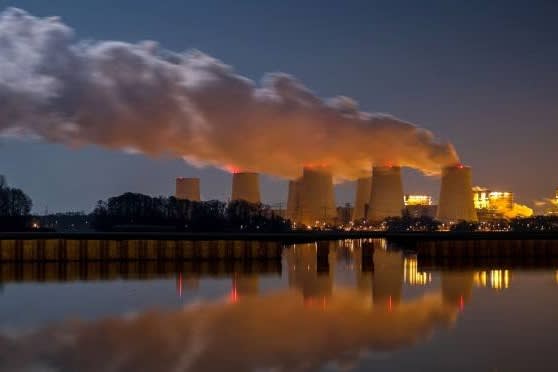Investors need to dig deeper into climate conundrum
The world of climate engagement is hotting up.
Until now, companies have seemed to get credit just for offering investors a vote on climate change policies. Net zero plans have been waved through. Glencore, one of the world’s largest coal miners, received 94 per cent support for its proposals when it put them to a vote in April.
But those days may be (almost) over. On Thursday, miner BHP suffered the biggest shareholder rebellion yet of any European company.
Sure, it wasn’t exactly a nail biter. Only 17 per cent rebelled against management’s “climate transition action plan” at a vote in London. Australian shareholders get their say next month. They may be less likely to object.
But investor support on UK companies’ plans has averaged 97 per cent so far this year, according to Insightia data. Against that, 83 per cent approval no longer looks so good. Only one other company in Europe received less than 90 per cent backing this meeting season, a report from Georgeson showed last month. And that was oil major Shell.
So-called “say on climate” votes are becoming increasingly common thanks to a campaign by billionaire investor Chris Hohn. His TCI Fund corralled global investors to increase their pressure on companies and their climate disclosures.
He wanted annual disclosure of emissions, a plan to manage those emissions and a yay-or-nay vote from shareholders on management’s plan. He’s getting what he asked for. There have been nine such votes in the UK so far this year. More are promised for next.
These votes present a conundrum for companies. They are, in some cases, being asked to answer close-to-impossible questions, particularly in sectors where emissions are hard to remove or abate. They need to set out not only how they’re going to get their own emissions to net zero, but their suppliers’ and customers’ too. And it’s the customers — so-called Scope 3 emissions — that are proving the trickiest bit.
BHP can electrify the trucks that trudge around its mines, and switch all its power to renewable sources. But at the end of the day, Scope 3 emissions are 96 per cent of its total. It mines iron ore, which is used to make steel. Its customers are some of China’s biggest steelmakers. It cannot set targets for them. There is no green way of making steel on a big enough scale. “Near-zero emission technologies” are between 10 and 50 per cent more expensive than regular steelmaking methods, Jefferies analysts reckon.
That means BHP’s plan doesn’t set a Scope 3 target for customers’ processing of its products. Instead it commits to partnering with customers to “accelerate the transition to carbon neutral steelmaking”.
It might be fair enough not to commit to a target you don’t know how to deliver. But critics such as the Australasian Centre for Corporate Responsibility point to the limited amount of money BHP is putting behind decarbonising steel — $75m across four partnerships so far.
That means investors face a conundrum too. They can either applaud companies for putting their plans to a vote, or condemn them for not being ambitious enough in their outlook.
Most have opted for applause. This is not that surprising: the companies that have taken the plunge are the relatively enlightened ones trying to get out ahead of the net zero issue. They do not expect a bloody nose for their efforts.
Sir Chris has resisted. With Shell, he said it was “obvious” shareholders should vote against plans that failed to cut the mustard.
Some have rejected the whole idea of a “say on climate”. They point to the failure of “say on pay” votes to constrain executive remuneration. Calpers, one of the most influential US investors, reckons voting against board members is more effective than voting down policies.
If investors want a vote and get a vote, they can’t simply bless every company’s climate plans. These are difficult issues, with uncertain answers, that deserve full scrutiny and debate. Making an effort may be better than nothing. But as more plans come to a vote, the threshold for support has to rise.
Climate Capital

Where climate change meets business, markets and politics. Explore the FT’s coverage here.
Are you curious about the FT’s environmental sustainability commitments? Find out more about our science-based targets here